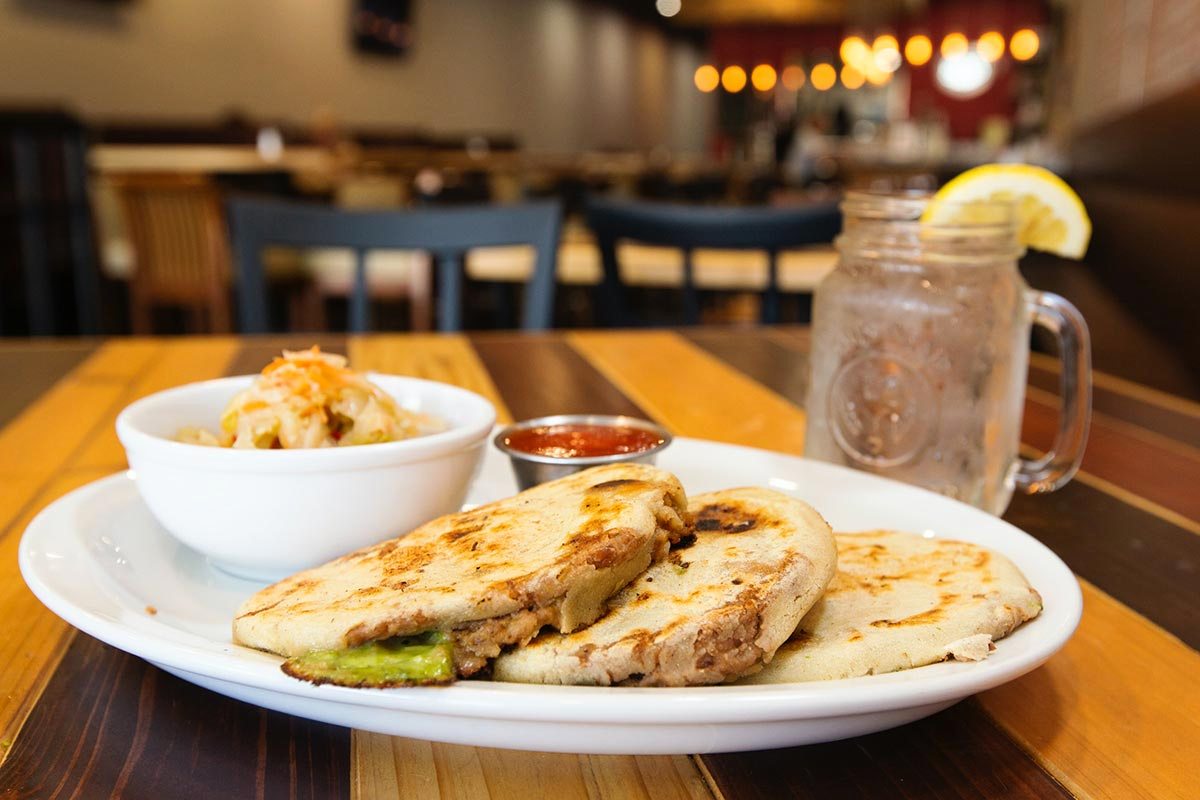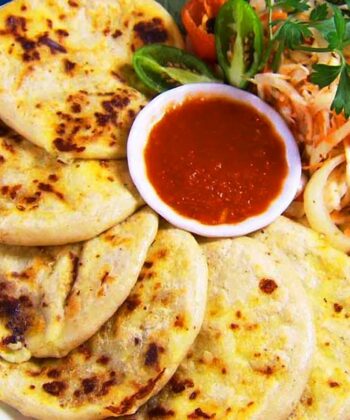
-
by Restaurantes
- December 1, 2023
- 9 Comments
The pupusa is a thick tortilla made from corn or rice dough, filled with one or more ingredients such as cheese, chicharrón (pork rinds), squash, refried beans, loroco, etc. Due to its tradition, versatility, and low cost, it is one of the most widespread foods in El Salvador and Honduras, countries that dispute its heritage. Although its origin is uncertain, it is most likely a mestizo dish, blending native Mesoamerican cuisine with the Spanish culinary tradition imported during colonization and subsequent migrations. Several recent studies claim that the pupusa has a Quiché Maya origin.
Pupusas have become a symbol of El Salvador. Along the streets of Salvadoran towns, it is common to find “pupuserías,” pupusa selling points, and even “pupusódromos,” a group of several pupuserías in the same square. In 2005, El Salvador declared the pupusa its national dish and the second Sunday of November each year as National Pupusa Day.
Pupusas are eaten by hand, sometimes folded, and always accompanied by tomato sauce and curtido.
The origin of the word “pupusa” is generally thought to come from the Pipil or Nahuat language. Nahuat is a language on the verge of disappearing, typical of the indigenous Pipil community in western El Salvador. The etymology is uncertain, but some publications indicate that the word has Nahua origin, “puxahua,” meaning ‘soft or fluffy thing,’ as stated in the Dictionary of Americanisms of the Association of Academies of the Spanish Language. Alternatively, it could be from Nahuat or Pipil, “pupusawa” or “pupushaua.” Additionally, there are theories tracing the term “pupusa” to Nahuatl.
Etymology
For Salvadoran linguist Jorge E. Lemus, the word is not Pipil. Although “puxawa” does exist in Pipil, according to him, it refers to ‘blackened or black corn.’ Lemus concluded that there is not enough study to clarify its origin.
According to Santiago Barberena, it would come from the Quiché (Guatemalan Maya language) “poputz,” from “pop” meaning ‘mat’ or ‘sphere,’ and “utz” meaning ‘well-made thing,’ something like “the two lids [of the pupusa] are well united” or simply “well united.” “Poputz” would have evolved into “poputza” or “popuza” and finally into “pupusa.”
With the Salvadoran migration in the late 20th century, pupusas spread to other places around the globe, especially to the United States, becoming an important Salvadoran and Central American identity symbol.






9 Comments